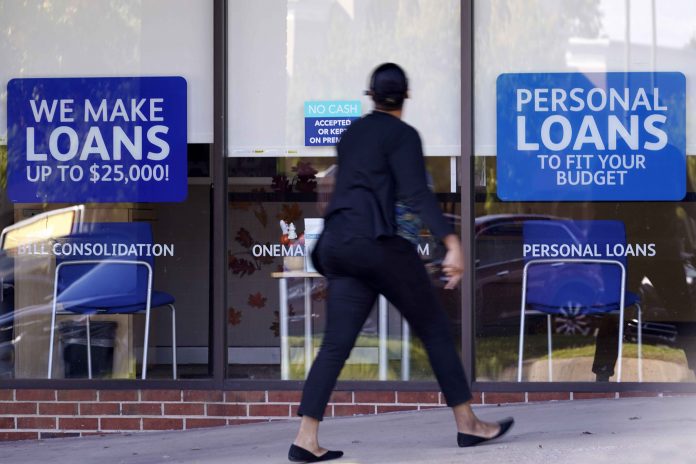Credit may not be top of mind for many consumers these days. But as the pandemic and its associated economic woes drag on, they may want to give it some attention.
COVID AND CREDIT
The good news is that consumers, by and large, improved their credit profile during the pandemic, despite record unemployment and massive business shutdowns.
The support programs that were put in place worked. Helped by federal stimulus payments, expanded unemployment benefits, lender relief agreements and a shift in habits, Americans used less credit, paid down debt, made fewer late payments and improved their credit scores. The average FICO credit score was 711 in July, up 5 points from a year earlier, according to Fair Isaac, the company behind the score. A FICO score runs from 300-850 and is one of the most widely used metrics to determine a consumer’s credit worthiness.
“It definitely feels like many consumers have taken a cautionary step in terms of saving and spending,” said Matt Komos, Vice President of Research and Consulting at credit reporting agency TransUnion. “I think there is a general cautiousness among the American consumer.”
The bad news is consumers’ financial health could be heading for a downturn soon. Some relief measures are expiring or have concluded, Congress has yet to reach agreement on a new relief package; meanwhile the job market and economic recovery remain fragile.
Credit profiles don’t yet reflect those developments. There’s typically a lag time between a major economic event and when it’s reflected in the credit files of Americans.
For example, during the Great Recession, the average national FICO score didn’t hit its lowest point until late 2009, months after the recession officially ended, wrote Ethan Dornhelm, vice president of FICO Scores and Predictive Analytics, in a blog Monday. In the case of the COVID-19 pandemic, it could be a significant lag because of the extraordinary steps taken to help consumers.
TransUnion said it is seeing a slight increase in 30-day late payments, potentially an early indication that borrowers are under financial duress and could default. This measure increased modestly in August for the two largest payments most consumers face — auto and mortgage.
“I think the full impact of the pandemic on their credit isn’t known yet and that is what worries me,” said Paul Golden spokesman for the National Endowment for Financial Education. “Even with good credit and low debt and some savings, after more than six months or potentially going on to a year, few people can withstand that stress.”
NEW CREDIT NORMAL
Consumers should be aware that some of the rules surrounding credit have changed, and keep in mind that the decisions they make to survive these tough times will impact their financial future.
For one thing, checking a credit report has gotten easier. As part of a massive relief package passed by Congress, known as the CARES Act, consumers can check their credit report from the three credit reporting agencies weekly for free online at annualcreditreport.com. This expanded access is available through April 2021.
Additionally, consumers who reached some sort of relief agreement with their lender due to COVID-19 — such as forbearance, reduced payment or other arrangement — generally should not see their credit score worsen.
The CARES act requires that accounts that were in good standing before any COVID-related relief accommodation was made will remain in good standing. Those that were delinquent cannot sink further but can be made current. This rule stays in place until 90 days after the national emergency for COVID-19 ends.
However, if you do not strike a relief agreement of some form, any late payments or other negative steps will still be reflected on your credit report.
If you are in a relief agreement but feel it has been reported improperly, reach out to your lender and the credit agencies.
KEEPING CREDIT HEALTHY
Consumers who are struggling should seek help from their lender as soon as possible.
TransUnion estimates about 10% of consumers are using at least one form of relief accommodation already. But experts say many people who are eligible for help have not sought assistance yet.
Consumer finance and credit experts urge people to get help where they can. Make sure to ask questions about the terms, such as how long the assistance will last, if interest will be accrued, or if late fees may still apply. And how your agreement will be reported to the national credit reporting agencies.
Consider adding a statement to your credit report to explain any negative activity. A COVID-related job loss or illness could help explain a period of late payments.
EXIT PLAN
Any assistance you get will not last forever.
Stabilize your household’s finances as much as possible with relief opportunities and then reassess to come up with a longer-term plan. If you have run out the clock on a relief agreement, seek an extension if needed. If you need further help, consider talking to a nonprofit credit counselor. The Financial Planning Association and many other certified financial planner organizations are offering free assistance to those impacted by COVID-19 as well.
Beverly Anderson, President of Global Consumer Solutions at Equifax, said that everyone’s credit situation is unique. All the same, she reminds consumers of the basics for healthy credit: establish and maintain responsible credit habits, like paying bills on time; pay off debts as quickly as possible; apply for credit sparingly and keep your balances well below their limits.

















